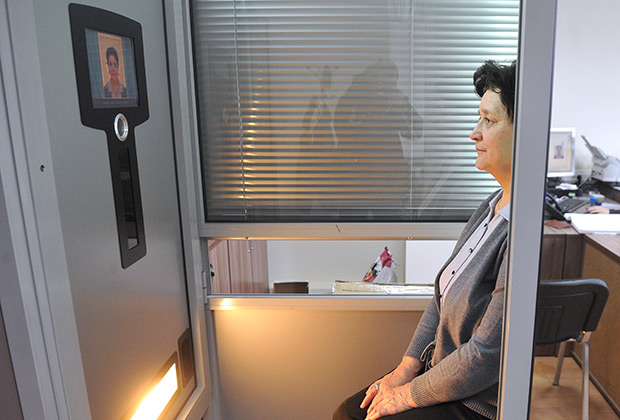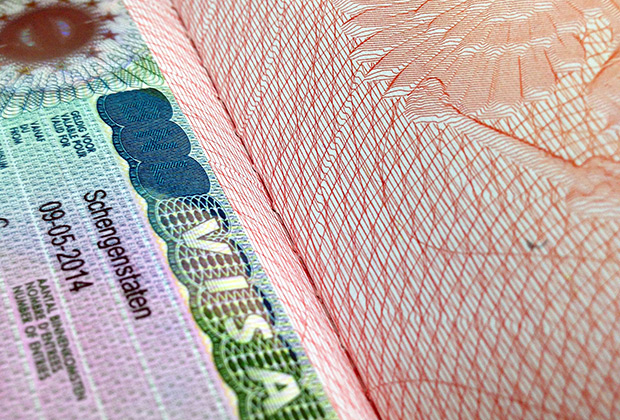
What threatens Russians with the new rules for obtaining a Schengen visa?
From September 14, the rules for obtaining a Schengen visa will change for Russian citizens. In addition to the standard package of documents, Russians will have to submit personal biometric data. Lenta.ru looked into the details of the innovations.
What to do
Biometric data does not need to be submitted every time you apply for a visa - only at the time of first submission of documents. Re-testing will only be required after five years, regardless of the number of visas received or trips taken. It is important to note that all old visas issued before September 14, 2015 remain valid until their expiration date.
From a technical point of view, the operation is extremely simple. It involves scanning your fingerprints and creating a digital photograph. The procedure is carried out strictly confidentially and takes only a few minutes.
Each applicant must submit biometric data in person. Exceptions are made only for children under 12 years of age, as well as for heads of state, members of national governments (including their spouses) and members of official delegations.
Anticipating a huge number of questions about changing the rules for obtaining a Schengen visa, at the end of August the EU Delegation launched a special Russian-language website, where all the necessary information is collected.
Security questions
Personal biometric data does not remain at visa centers, but is processed and entered into the so-called Visa Information System (VIS), common to all 26 Schengen countries. Now, no matter which consulate a person applies for a Schengen visa, you can easily track his entire visa history with possible violations of the visa regime, refusals to issue a visa or its cancellation. The VIS database is stored on servers in France and duplicated on backup servers in Austria.
Photo: Sergey Kiselev / Kommersant
According to EU official representative in Russia Vygaudas Ušackas, a biometric visa has a number of advantages compared to a regular one. It allows you to significantly simplify and speed up the procedure for obtaining a visa, especially when applying again, simplifies the border control procedure, reduces the likelihood of technical errors when applying for a visa, prevents the use of someone else's documents when crossing the border of the Schengen zone and ultimately increases the safety of Russian tourists when visiting Europe . Ušackas emphasized that the cost of a visa remains the same and is 35 euros; visa centers should not charge more than 30 euros for their services in rubles at the exchange rate.
“The introduction of a new visa system will have a positive impact on the issuance of long-term visas for a period of six months to one or even two years,” says Natalia Golovlenkova, managing partner of the tour operator Clickvoyage. “As for failures in the collection and processing of biometric data, there should not be any, since the system has undergone solid international testing.”
The introduction of a biometric visa for Russians is part of the EU's overall visa policy. The creation of the VIS has been purposefully carried out since October 2011. Currently, 17 out of 26 countries are connected to the program. By November 2015, it is planned to complete the connection to the VIS of all visa departments of the Schengen countries around the world.
No quotas
The rule for submitting biometric data applies not only to individual, but also to group applications submitted through travel agencies. The technical side of the issue is still being worked out, but some important details are already known. Thus, the Consulate General of Finland in St. Petersburg explained that from now on they only accept small packages of documents from travel agencies - for groups of no more than 15 people. In this case, each applicant is required to personally appear at the Consulate General in the second half of the same day for fingerprinting. If at least one person does not come, the entire package remains without consideration.

However, quantitative restrictions are not a general rule. “All visas are issued as usual. Visa centers did not announce any quotas to tour operators,” explains PR Director of TEZ Tour Larisa Akhanova. “The operating rules remain the same: registration and availability.” The Consulates General of Spain and Germany also confirmed to Lente.ru that no one had set any special quotas.
Time is money
It is expected that the new type of visa will be issued by 350 visa centers and 60 consulates general operating in Russia. For such a huge country this is clearly not enough. Many tourists, especially from rural areas and small towns, who previously obtained a visa through travel agencies, will now have to specially come to places where such institutions exist. This entails additional material and time costs, which can be a decisive factor in deciding on the choice of travel route. And therefore, the possibility of creating mobile visa centers is being discussed. But such structures are commercial enterprises, and what the cost of their work will be is unknown.
Currently, due to the transition to a new visa issuing system, some consulates have temporarily changed their work schedule. For example, consulates general and visa centers of Spain, Norway, Italy, Sweden, Germany, Slovenia, Greece will not accept visa applications for one or more days between September 4 and 11. Consulates general and visa centers of Poland, the Netherlands, Portugal, Slovakia, France and Switzerland, on the contrary, are operating as usual.
Passion for Europe
Visa innovations always cause a decrease in tourist flow. According to the World Tourism Organization - by 15-20 percent. Domestic experts give a more pessimistic forecast. According to the first vice-president of the Association of Russian Tour Operators (ATOR) Vladimir Kantorovich, we can expect a decrease of about half. “We have before our eyes the example of England. After the country introduced a biometric visa for Russians in 2008, the flow of tourists from Russia decreased by 50 percent, Kantorovich noted. “But Israel, which at about the same time abolished visas for Russian citizens, increased it threefold.” The Russian Union of Tourism Industry predicts a decline of 30 percent.

Photo: Safron Golikov / Kommersant
It's not just about technical difficulties and additional time costs. Many Russians perceive the introduction of biometric visas in the context of the confrontation between Russia and the West and see this as an openly unfriendly step on the part of the EU.
According to Ušackas, approximately 15 million Schengen visas were issued in 2014, of which 5 million 800 thousand were issued to citizens of the Russian Federation, more than to anyone else. Thus, a decrease in tourist flow from Russia by even a third threatens serious losses for the European tourism industry. The amount of possible losses amounts to billions of euros.
European partners look at the situation more optimistically. The German tourism office in Russia told a Lenta.ru correspondent that they do not predict a significant decrease in tourist flow due to visa innovations. “If there is a decline, it will be associated with the current economic situation, in particular with sanctions and the weakening of the ruble,” said the head of the office, Alla Belikova.
According to the largest Russian tour operators surveyed by Lenta.ru, interest in visa destinations remains consistently high. “The depth of sales is about a month,” notes Larisa Akhanova. “Many people choose Greece or Spain, also because this is a good opportunity to get a long-term visa.”
The Russian Foreign Ministry also responded to the introduction of biometric visas. The possibility of taking retaliatory measures is currently being explored, but no official decisions have been made yet.
In this regard, Rostourism responded that the introduction of retaliatory fingerprinting will inevitably lead to a reduction in incoming tourist flow. The department, on the contrary, actively advocates easing the visa regime. For example, the possibility of visa-free stay for 72 hours is being considered for transit passengers, as well as for tourists arriving on cruise ships.